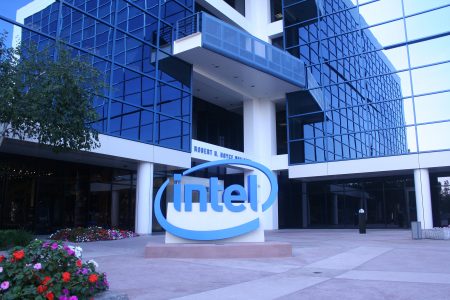Intel Joins Delphi, Mobileye, Using Chips for Self-Driving Cars - Dispatch Weekly
November 29, 2016 - Reading time: 6 minutes

Intel, the computer hardware manufacturer is set to collaborate with two companies, Delphi and Mobileye, to provide computer chips for self-driving cars.
The companies hope that the chips will be available on the market by 2019, to be used to adapt a vehicle to be self-driving.
Intel, Declining PC Sales and Self-Driving Cars
While Delphi, an auto supplier, and Mobileye, a company specializing in vision technology, are existing players in the self-driving car market, Intel has yet to fully throw their own weight into the self-driving car market.
Intel is well known for their home computer CPU’s (central processing unit). According to a report by Newegg Intel CPU’s dominated sales figures for the first half of 2016, taking all three top spots for best sellers.
The home computer market might be in trouble, however, which would have a knock-on effect for Intel. Gartner reported that the third quarter of 2016 was the eighth in a row to see a decline in sales of PC’s.
Meanwhile, competitors have so far managed to beat Intel to the self-driving car market. Nvidia, who are recognized for making GPU’s (graphics processing unit), and Qualcomm, known for CPU’s and mobile technology, have already established themselves in the automotive chip business, leaving Intel behind.
Michael Ramsey, analyst at Gartner Group, said “Intel is looking to get into the automotive space because the demand for processing power in cars is going to skyrocket.”
This supposed future demand for automotive chips is in stark contrast to the decline in PC sales that Intel has seen on their home turf.
A Race Towards Self-Driving Cars On the Market
The computer system at the heart of the work being done by Intel, Delphi and Mobileye will be capable of making 20 trillion operations a second according to Glen DeVos, vice president of engineering at the U.K. based Delphi.
DeVos claims that further iterations on the chips will be a staggering two to three times more powerful.
A self-driving car needs to be able to do everything a human driver can do, no small feat for the technology powering it.
“You’re taking in vast amounts of visual data,” Ramsey said. “It all has to happen in real time.”
Delphi is currently testing their self-driving car technology in countries like Singapore, but is hoping to find a city in the US to carry out a similar test. DeVos said that they were thinking about Pittsburgh or Boston for a test run in 2017.
Ron Medford, director of safety for Google, said “Look back 100 years at when we made the transition from horses to cars. Now getting rid of the driver will have the same kind of impact on our society.”
Who Are the Other Players in this Market?
Tesla, who earlier in the year suffered a blow when one of their self-driving cars crashed, killing the driver inside, uses Nvidia chips to power their cars. A more powerful version of Nvidia’s existing chip is already in the works.
Nvidia senior automotive technology director Danny Shapiro said of Intel that, “They are coming late to the game. We have been in this space a long time already.”
BMW, who are also investing in self-driving technology, have announced that they want to have their cars ready by 2021.
Harald Krϋger, BMW chief executive, said of the advent of self-driving cars that it was, “The brink of a new revolution.”
The tech behemoth, Google, have also committed themselves fully to creating a self-driving car and their test vehicles have already covered 2 million miles. Google have been more hesitant about giving a release date for their car but Google’s own Medford has said “relatively soon.”
The Future for Intel and Self-Driving Cars
DeVos believes that Intel’s ability to mass produce the chips needed to power self-driving vehicles will give them the edge.
Intel currently provide Apple with 50% of the modems it needs for its iPhone 7 range.
But is the public ready for self-driving cars, or are the companies pushing for this technology moving too fast? A AAA survey conducted in early 2016 found that three out of four US drivers would feel afraid to ride in a self-driving car
Drivers who were already experienced with semi-autonomous technology, however, were much more likely to feel comfortable with the idea of a self-driving car.
Despite resistance from the public, if proved successful self-driving cars have the potential to transform highways, increasing road safety and speeding up transportation of goods. This will have a massive impact on public transport and the job market.
Are companies too quick to enter the self-driving car race without considering whether they offer anything unique?

DW Staff
David Lintott is the Editor-in-Chief, leading our team of talented freelance journalists. He specializes in covering culture, sport, and society. Originally from the decaying seaside town of Eastbourne, he attributes his insightful world-weariness to his roots in this unique setting.

_1.jpg)


